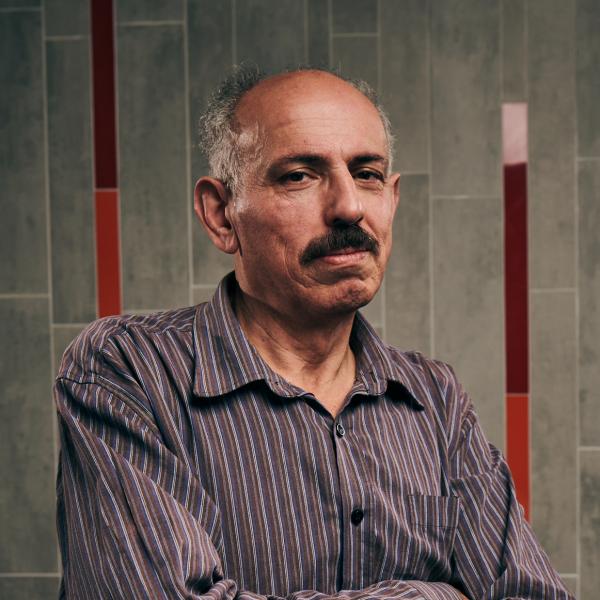Diamond Pilot Plant
The Diamond Pilot Plant (DiPP) is the cornerstone for the education of The Sheffield Chemical Engineer. Future engineers will use, test and explore integrated processes with state of the art simulations and world class control systems in a safe, production orientated environment.
Key Features
The plant features cutting edge integrated manufacturing processes at relevant industrial scale that incorporate many traditional and modern unit operations:
- Dedicated industrial control room
- Power to X pilot plant to convert renewable energy to environmentally friendly diesel fuel
- Next-generation biomanufacturing using sustainable feedstock
- Manufacturing of high value formulated products e.g. pharmaceutical dosage forms.
DiPP has cutting edge equipment, software and products sponsored by manufacturing companies including GEA and NiTech and Solaris. In addition to giving students real world experience, the manufacturers benefit from having around 500 students per year exposed to their products and engineering philosophies. DiPP can also be used for training and upskilling employees of UK companies in modern engineering processes and tools. DiPP demonstrates that our engineers are part of the solution for the grand challenges our communities face in the world today.
- Integration of physical and virtual process plants: Dynamic process simulations of each pilot plant are available in the control room. Students can undertake virtual experiments using the simulations as well as physical experiments on the pilot plant.
- Vertical integration of learning: During their first and second years, undergraduate students will use the pilot plant and data collected from the pilot to support learning in core curriculum such as chemical process principles and heat and mass transfer. DiPP provides a rich source of data and inspiration for both simple calculation exercises and open ended team projects. Further into their degree, students will revisit the pilot plant for a more detailed hands on experience, both to support specialists courses and as part of MEng and MSc research and design projects.
- Modern student learning: As part of the world class Diamond Teaching and Learning Facility, DiPP provides a special environment to support modern student centered active, experimental learning skills and important engineering attributes including safety, leadership, communication, synthesis and innovation.
- Chemical Product Engineering: Traditionally chemical engineers are process engineers. 21st century chemical engineers need to be both product and process engineers who develop new products, as well as design the process that manufacture them. DiPP is a unique learning environment for product as well as process engineering, where students learn to develop, characterise and reverse engineer new products for high value manufacturing, biotechnology, and clean fuels.
Watch DiPP in action
Take a tour of DiPP with our students.
Continuous Powder Processing Plant
The first of its scale in any UK university, the Continuous Powder Processing Plant provides platform to unite and integrate expertise in the area of pharmaceutical solids manufacturing and address the challenges in the field.
High value formulated products are worth £180 billion per year to the UK economy and cover a range of industry sectors including pharmaceuticals, consumer products, speciality chemicals, agricultural chemicals and food products.
In recent times, the global pharmaceutical industry has increasingly implemented integration of continuous manufacture of solid dosage forms due to the better quality consistence and reduces development costs.
Students using this facility are immersed in the culture of product engineering using high class characterisation equipment to measure both the properties of the formulations and the attributes of product tablets they produce.
The facility includes powder process steps for formulated product manufacture such as crystallisation, blending granulation and tableting.
Students use the plant to test design model for individual unit operations and use the integrated manufacturing process for open ended research/ design projects suitable for master’s students.
The faculty is also available for training and continuing education for employees in industry sectors that manufacture formulated products.
Biotechnology Pilot Plant
The UK has the 4th largest Biotech pipeline in the world and the largest in Europe. Biotechnology has the potential to address some of the world’s greatest challenges, such as offering alternatives to dwindling natural resources (e.g. fossil fuel), feeding a growing global population and transforming the way we live.
Economic benefit derived from embracing these challenges with biological solutions (i.e. the bioeconomy) is estimated to be worth at least £17 trillion in the EU, with an employment or around 22 million people.
Our pilot plant houses state-of-the-art fermenters for cultivation of various microorganism’s types, novel bioreactors and advanced downstream processing instrumentation for product recovery, purification and formulation. It will be the core of practical training for undergraduate and postgraduate education in biological engineering, guided by our world leading research into industrial biomanufacturing and bioenergy.
The pilot plant gives hands on training in fermentation, biopress monitoring and downstream processing including protein separations and formulations. In addition, the students are given the chance to learn about in scaling up production. Students on the MSc Biological and Biopress Engineering use the facility heavily, especially for their projects.
DiPP Process Automation & Control
Fast production of the consistent high-quality products requires an integrated process control and automation system.
The DiPP’s processes and units are controlled, monitored and optimised by state of the art distributed control system. This system enables students and researches to experiment and conduct high-quality research safely, pushing boundaries to meet industry needs.
DiPP’s process control system is a reliable, flexible and scalable automation platform that is easy to configure and can diagnose any plant issues quickly and efficiently. It helps to teach and understand the basic and complex instruments and control schemes, safety systems, process integration, commissioning and shutdowns, and production costs of maintenance.
The DiPP benefits from a powerful simulation software executing real-time simulation and emulation for a complete automation program validation and training. DiPP’s control room is designed for teaching and research excellence at the University of Sheffield.
Power to X Pilot Plant
While it is clear we need to reduce fossil fuel CO2 emissions, it is also clear that we need high energy density fuels such as Diesel and Kerosene to maintain long-haul road and air transport infrastructures. PtoX removes fossil fuel from the supply chain and provides a circular economy in which emitted CO2 is recycled and reused. The power to X pilot plant is the first example of a cradle to grave approach to liquid fuels at an educational institution that is specific to the undergraduate curriculum. This puts Sheffield at the forefront of research led teaching. We produce Diesel from emitted CO2 and water and test the efficiency of the product in Diesel (and jet) test engines in order to give students a real-world experience of an important future technology.
Students will take CO2 either from bottles or directly from the urban air outside the Diamond and water from the mains supply. Solid oxide co-electrolysis of the two feeds will give syngas and the composition optimised by varying the conditions. Syncrude will then be produced in the Fischer-Tropsch reactor, which is then separated by distillation to give different grades of Diesel fuel.
At all stages, students can measure intermediate and product compositions on the line, and use the information to optimise the product and process. The different grades of Diesel produced by different student teams is tested on dedicated Diesel engine beds to discover the optimum performance-composition characteristics.
The power to X pilot plant gives students an opportunity to learn hands on core skills in mass and energy balances, reaction engineering and separation process applied to cutting edge technology, solving a problem of great global significance.





